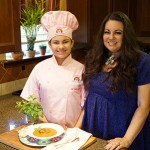Dianne de Las Casas knew she wanted to write for children since she was in second grade. Many of her teachers patted her back and nodded, but according to de Las Casas, “Mrs. Goode believed me and in me.” By the time Mrs. Goode retired after thirty years in the classroom, de Las Casas was a published author. Mrs. Goode sent a box of stories that de Las Casas had written while in her class. The enclosed note said, “I knew you would become someone someday.” When de Las Casas visits schools she similarly inspires students to believe in themselves and each other. “All you need is one person to believe in you and to support your dream,” she says.
de Las Casas’ path to publication was not without adversity. Her home was damaged in the wake of Hurricane Katrina in 2005. While she lived in Houston with her two girls for a year, her husband rebuilt their home in New Orleans. At this time, her first book was released. “I held that book and cried like a baby,” she says. “I felt like I was drowning and it was a buoy.”
Additionally, de Las Casas survived several years of sexual abuse by her father, who ultimately shot himself. She prefers “survivor” over “victim” because it projects a winning attitude. “I don’t regret any of it because it’s turned me into a very strong person with a lot of willpower,” she says. “I couldn’t do all of this great writing and have this burning desire to succeed if I didn’t have something pushing me.”
de Las Casas credits the Society of Children’s Book Writers and Illustrators (www.scbwi.org) for encouraging her to pursue her dream of writing for children. She turned to her childhood collection of folk and fairy tales for her first book, The Cajun Cornbread Boy, which honors her stepfather’s Cajun traditions. “I started playing withThe Gingerbread Man because I’d seen so many versions, but I made [mine] different because he’s made of cornbread and he has a big dash of cayenne pepper. In the end when the ‘gator tries to eat him, he’s much too spicy.” The Cajun Cornbread Boy remains one of de Las Casas’ bestselling books.
Most of her books incorporate rhythm, rhyme, and singing. In fact, Mama’s Bayou, a Disney iParenting Media Award winner, was inspired by onomatopoeia. “One night I was in bed rocking Eliana and I heard crickets outside.” Their chirps became the percussion section to an impromptu song that began, “Mama’s by you on the bayou rocking to the crickets. Chirp, chirp.” The song became a family favorite that eventually morphed into a sweet bedtime book full of rhythm, rhyme and repetition.
Cinderella is de Las Casas’ favorite fairy tale, so it was only a matter of time before she rewrote it with her own twist. “I collect Cinderella stories from around the world,” she says. But the title for Cinderellaphant revealed itself during an episode of Wheel of Fortune with a “before and after” puzzle—two phrases combined by a word that ends the first and starts the second. For instance, tea party and party hat gives tea party hat.de Las Casas was thinking about Cinderella when the “before and after” idea took hold. The story is filled with puns and word play that kids and parents appreciate, such as step-hippos, a fairy god-mouse, and a peanut carriage. According to de Las Casas, “Cinderellaphant is the only maiden big enough to fill a princess’s shoes.”
de Las Casas writes from home, usually late at night when her family is asleep and all is quiet. “I’m inspired by titles,” she says. “I start with a title because it is the theme, and it’s so much easier to work around a theme.” She also loves twists of folk and fairy tales, such as The Little “Read” Hen—as in the past tense of read. Instead of making bread, de Las Casas’ hen makes a story and in doing so illustrates the writing process for young readers.
An accomplished student of the oral storytelling tradition, and author of several professional development books for teachers and librarians, de Las Casas is never at rest. The International Reading Association recently named her Poet Laureate because of her work and dedication to literacy, and for founding an international literacy initiative called Picture Book Month (http://picturebookmonth.com/). She also brings her considerable communication and social networking skills to bear for her youngest daughter, Kid Chef Eliana (http://kidchefeliana.com/), a teen TV chef.
“Words can make a difference,” de Las Casas says. “And they do. I have dedicated my life to writing stories for children. It brings me joy to see joy on the faces of the students I visit at schools. I love being able to make a difference.”


